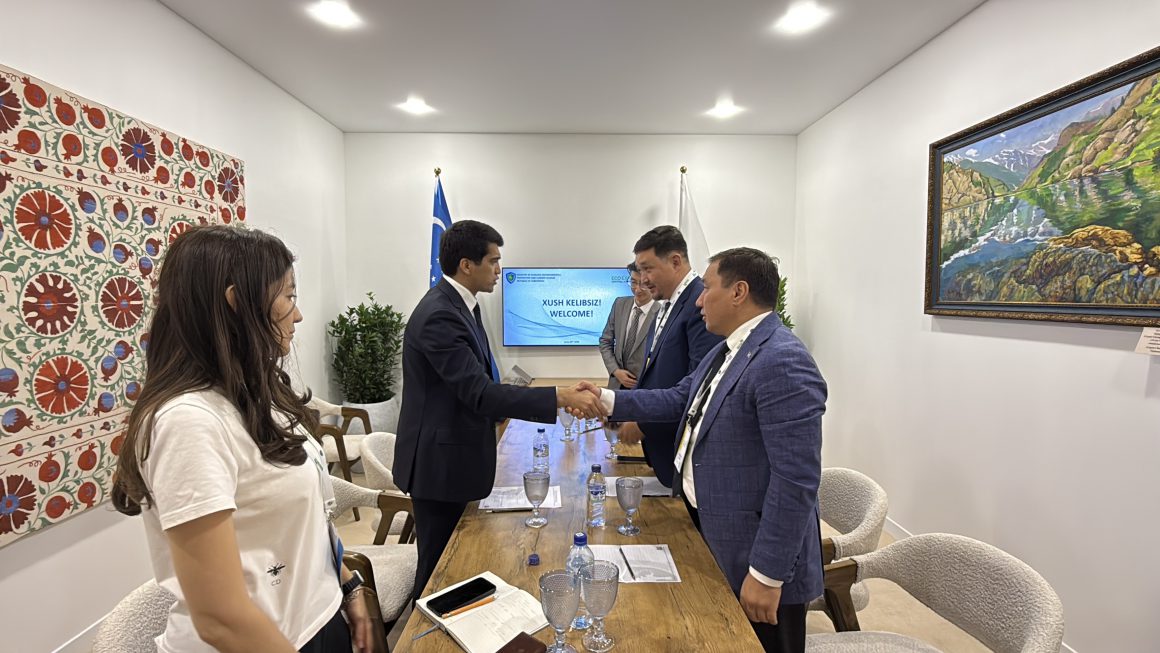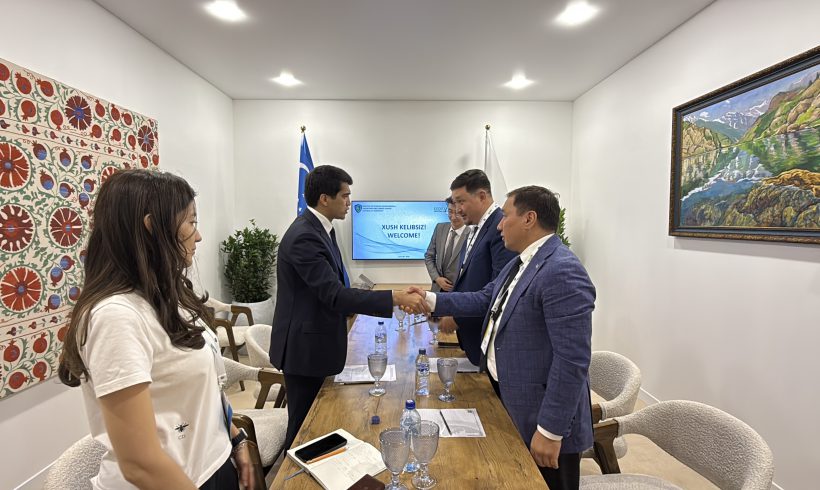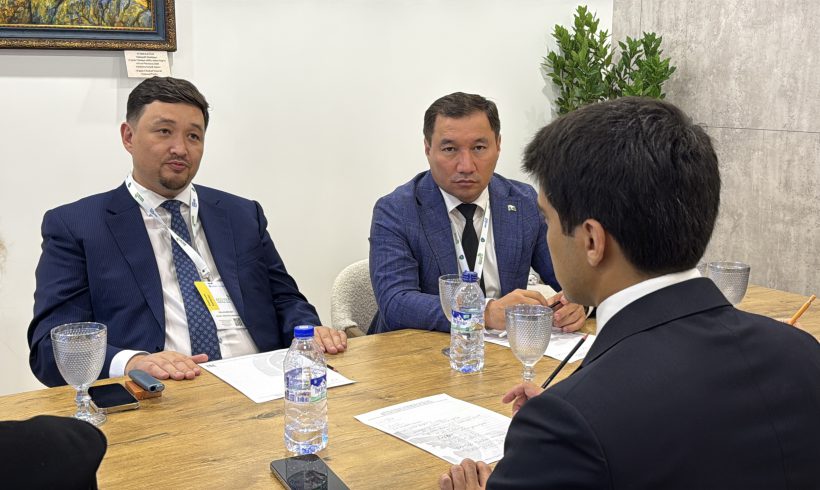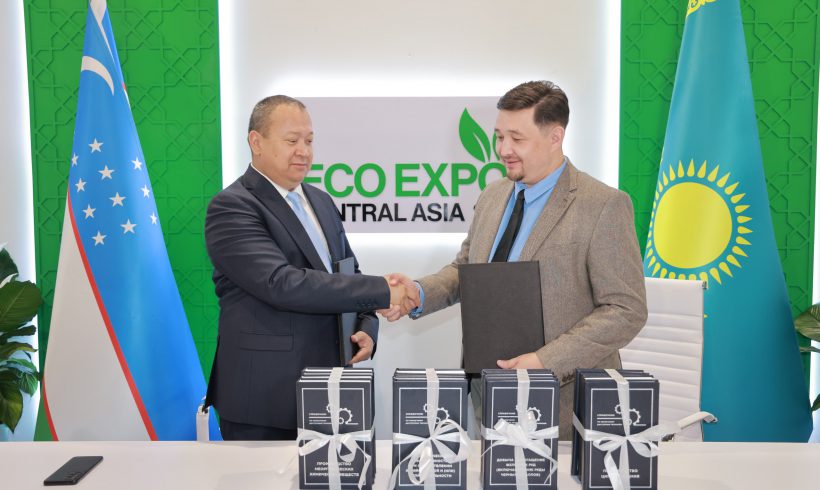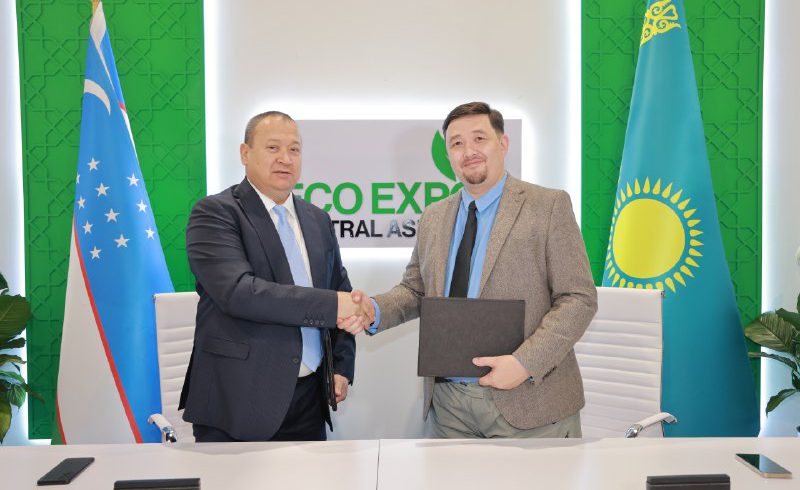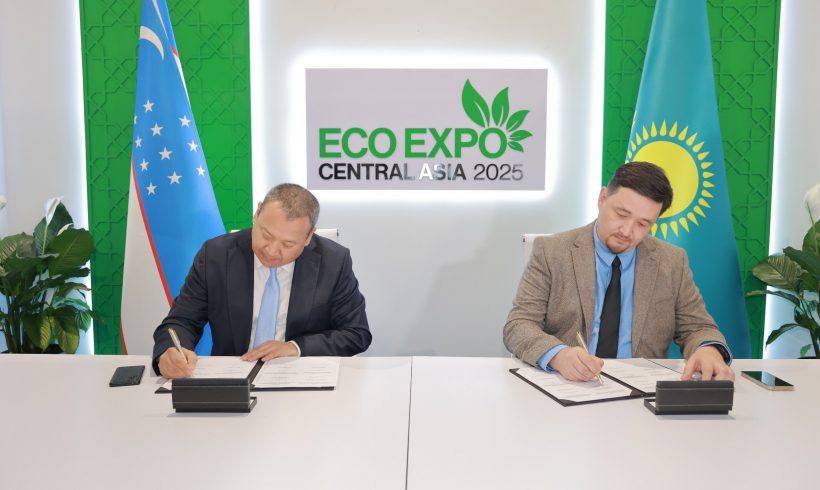As part of the second day of the international exhibition ECO Expo Central Asia 2025, a working meeting took place between representatives of the National Center for Green Technologies and Investment Projects (IGTIPC) and the leadership of the Agency for Waste Management and Circular Economy Development of the Ministry of Environment and Climate Change of the Republic of Uzbekistan.
The parties discussed possible formats of cooperation in key areas of environmental modernization. The Kazakh delegation confirmed its readiness to provide expert and technical support in the following areas:
- implementation of best available techniques (BAT) in the industrial sector;
- launch of carbon trading systems;
- promotion of green finance instruments, including bond issuance;
- formation of a registry of environmentally efficient technologies;
- development of acceleration programs for cleantech startups (GCIP Kazakhstan);
- support of investment projects within international sustainable development mechanisms.
Special attention was given to Kazakhstan’s practical experience: the solutions presented are already operational at the national level and can be adapted to Uzbekistan’s conditions. Proposals include the involvement of Kazakh experts in developing regulatory frameworks, launching pilot initiatives, and forming institutional approaches.
As a result of the negotiations, a number of memorandums of cooperation were signed on the final day of the exhibition between IGTIPC and its Uzbek partners. The documents were signed by the Deputy Minister of Ecology, Environmental Protection and Climate Change of Uzbekistan, Jusipbek Kazbekov, and the Acting Chairman of IGTIPC, Saken Kalkamanov.
“Today we are not just discussing prospects — we are laying the foundation for practical environmental cooperation in the region. Kazakhstan has gained significant experience — from the implementation of BAT to the launch of green startups — and we are ready to share this experience. We consider our partnership with Uzbekistan to be strategic and long-term,” noted Saken Kalkamanov.
Among the agreed initiatives:
- integration of digital solutions from the Faceplate project into Uzbekistan’s industrial sector;
- use of the TQ-Drone platform for forest restoration in mountainous regions;
- implementation of a smart irrigation system in Tashkent city parks using YSL technology;
- joint water purification and e-waste recycling projects involving the Central Asian University for Environmental and Climate Studies (Green University, Tashkent) and startups Cryoadsorbent and Kaz-REEcycling.
It is important to note that all of the above-mentioned projects underwent preliminary selection and acceleration as part of GCIP Kazakhstan, the flagship cleantech startup development program implemented by IGTIPC in partnership with UNIDO and the Global Environment Facility (GEF).
A separate memorandum was signed with the Agency for Waste Management and Circular Economy Development of Uzbekistan. It includes support in establishing a national registry of green technologies, launching a green acceleration program, preparing a BAT concept, and conducting technology audits of industrial facilities.
Additional areas of cooperation include the development of a centralized waste management system, including for medical and hazardous waste. The Uzbek side, in turn, expressed interest in sharing experiences and is ready to contribute its own achievements in the field of waste management and environmental regulation.


